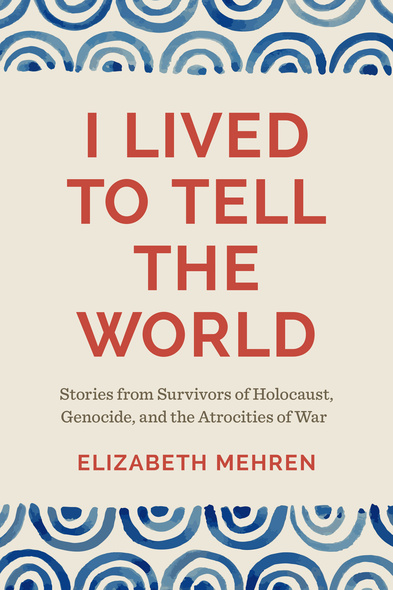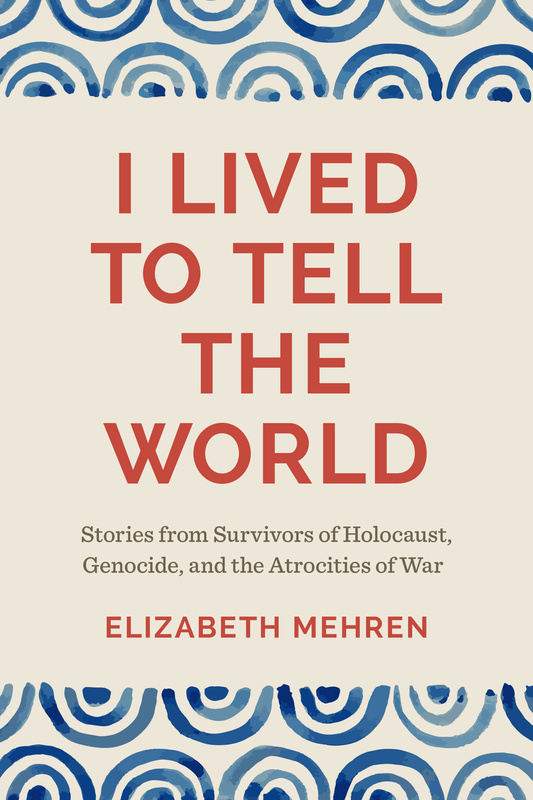
I Lived to Tell the World
Stories from Survivors of Holocaust, Genocide, and the Atrocities of War
As Americans increasingly question how each of us fits into our nation's cultural tapestry, I Lived to Tell the World presents thirteen inspiring profiles of refugees who have settled in Oregon. They come from Rwanda, Myanmar, Bosnia, Syria, and more-different stories, different conflicts, but similar paths through loss and violence to a new, not always easy, life in the United States. The in-depth profiles are drawn from hours of interviews and oral histories; journalist Elizabeth Mehren worked collaboratively with the survivors to honor the complexity of their experiences and to ensure that the stories are told with, and not just about, them. Mehren also weaves in historical, cultural, and political context alongside these personal stories of resilience.
In the face of global cruelty and hatred, the courage and fortitude of these individuals illuminate the darkness. Their stories inspire readers to reflect on their own experiences and to view newcomers to America with renewed respect. As more states adopt Holocaust and genocide education curricula and as issues around refugees, immigration, and racial justice gain attention, I Lived to Tell the World highlights the purposeful lives led by these Oregonians despite their painful pasts. Their experiences not only humanize the atrocities often seen in headlines, but also convey a universal message of hope.
I Lived to Tell The World is a beautiful, moving testament to human resilience. This book skillfully weaves together personal stories with historical facts, giving readers a window into some of our world's most horrific mass atrocities from a personal point of view. We are invited in as witnesses to hear these intimate stories, and despite the terrifying reality of the wars and genocides we read about, it is impossible not to come away feeling hopeful and full of awe. These stories remind us that it is possible to find meaning and purpose even amid suffering, and that we have agency in determining our path forward.'
-Annie Brewster, MD, Harvard Medical School
I Lived to Tell the World is a beautiful and searing gift of memory and reckoning. With this anthology of stories told by genocide survivors, Elizabeth Mehren offers stunning narrative and analysis in league with other unforgettable books that at once plumb the depths of human cruelty and soar to the highest levels of resilience and joy, among them The Diary of Anne Frank, A Problem from Hell by Samantha Power, and We Wish to Inform You That Tomorrow We Will Be Killed With Our Families by Philip Gourevitch. I can’t wait to share these stories with my global health and journalism graduate students.’
—Jennifer Beard, Department of Global Health, Boston University School of Public Health
Drawing on vivid accounts and poignant anecdotes, this book demonstrates how storytelling is an indispensable tool in revealing truths. Seamlessly weaving personal experiences with global issues, it is a testament to the profound impact of narratives in challenging injustice and fostering action. It shows how the tenacious pursuit of truth-telling not only opens doors to accountability but also serves as a beacon of hope in a world shrouded in misinformation.’
—Geeta Anand, Dean, Graduate School of Journalism, UC Berkeley, and Pulitzer Prize-winning author and journalist
It is common to look at the world's most horrifying man-made tragedies—war, genocide, mass persecution—through a magnifying glass, driving home the scale of the crime. In this powerful book, Elizabeth Mehren uses a microscope instead, zeroing in on the actual human beings who have been the victims of these tragedies, and the amazing courage and resilience that marks their refusal to let the horrors they've suffered define them. You'll find many people to cheer for in these pages.’
—Mickey Edwards, retired member of Congress and co-author of Congress: The First Branch
I Lived to Tell the World is a book of incredible power, containing stories of courage beyond measure and perseverance beyond imagining. It is also a book that challenges us all to never forget the words of the great Elie Wiesel, who said, ‘I swore never to be silent whenever and wherever human beings endure suffering and humiliation.’’
—Kerry Tymchuk, executive director, Oregon Historical Society





